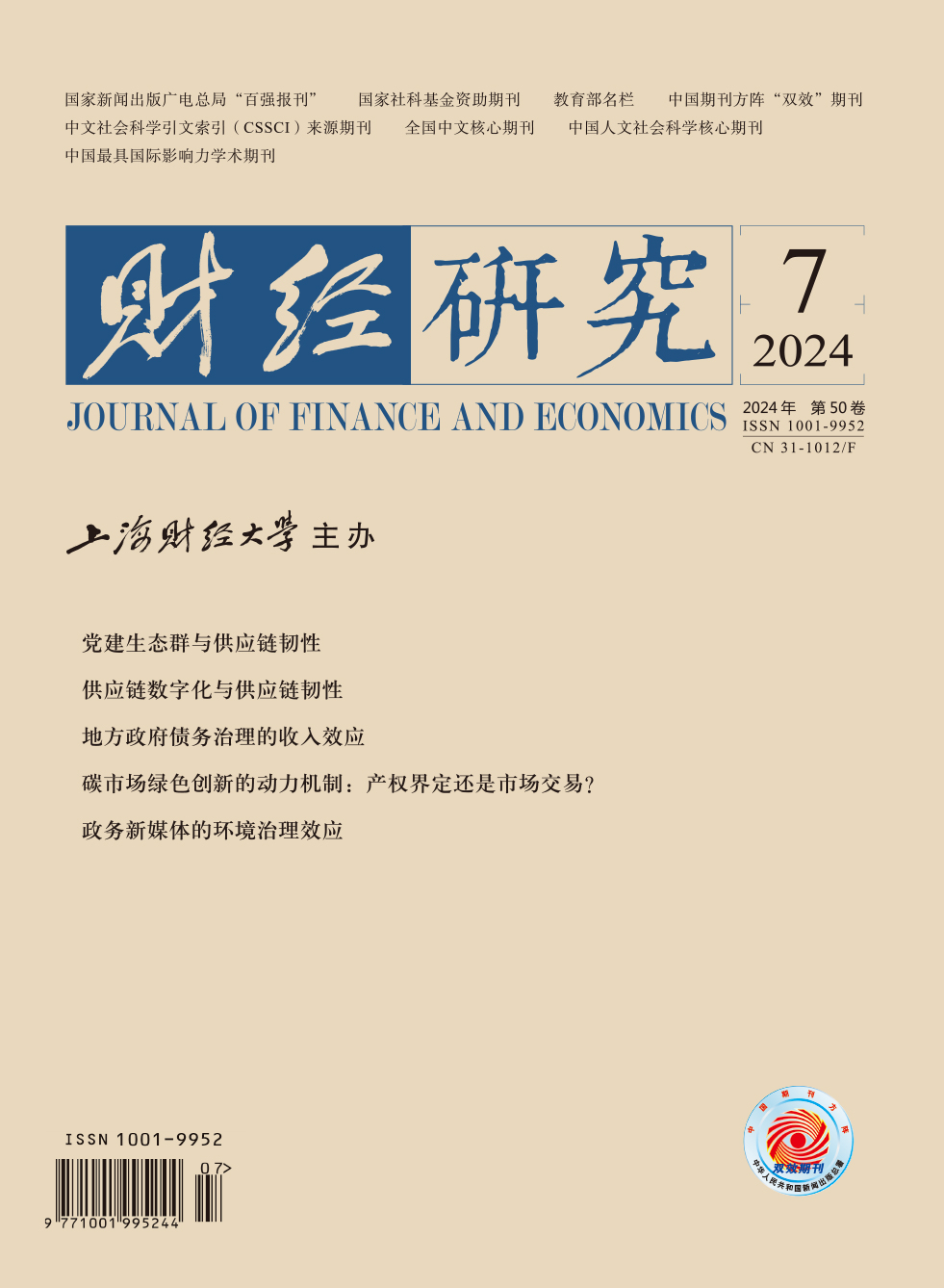In the current context, Chinese enterprises are confronting unprecedented uncertainty in their production and operations, which negatively impacts labor income shares and spreads through a domino effect on the economy and financial system, exacerbating systemic financial risks. Therefore, how to effectively respond to the decline in labor income shares while preventing and resolving local government debt risks has become a key link in promoting high-quality development of the real economy. In fact, China has implemented a series of measures to tackle local government debt risks and improve the distribution pattern of national income. One notable initiative is the reform of local government debt management launched in 2015, which fundamentally constrains the debt financing mode for local governments.
Taking the debt management system reform implemented by local governments across China in 2015 as an exogenous shock, this paper uses the DID model to identify the income effect of local government debt governance. The study shows that local government debt governance can bring a significant positive income effect, and alleviating financing constraints, intensifying market competition, and improving human capital are the core mechanisms of this effect. Furthermore, this paper finds that the positive income effect of local government debt governance exhibits significant structural differences in samples with different attributes. In addition, local government debt governance can not only reduce excessive debt, curb tax evasion, increase relative employment density, and enhance their risk-taking ability, but also help promote innovation and entrepreneurship activities in the regions where enterprises are located.
The marginal contributions of this paper are as follows: First, it confirms the income effect of local government debt governance, fully reflecting the role of local government debt governance in achieving the goals of “risk prevention” and “stable growth”, which is crucial for establishing a long-term mechanism of local government debt governance, improving income distribution structures, and promoting the high-quality development of the real economy. Second, based on the framework of “government-bank-enterprise”, it explains the underlying mechanism of the income effect of local government debt governance, providing theoretical foundations and practical insights on enhancing labor income shares and promote common prosperity. Third, it has important theoretical and practical value for optimizing the government financing structure and alleviating the competitive pressure of financing between the government and enterprises.





 4652
4652  5718
5718

